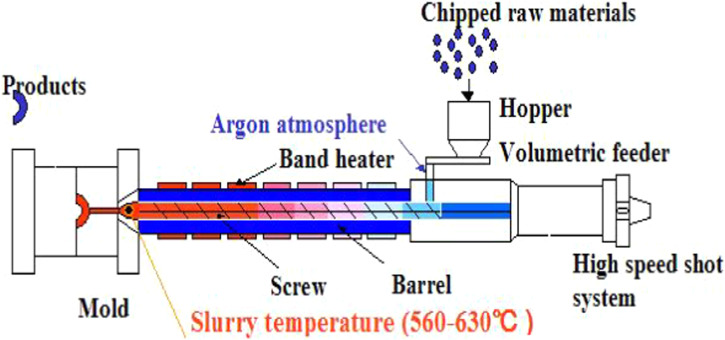Aluminum alloy die casting is a manufacturing process that involves the use of molten metal, specifically aluminum alloy, to create complex shapes and designs. This process is commonly used in the production of automotive parts, electronic enclosures, and household appliances.
The process of aluminum alloy die casting involves the use of a die, which is a tool made of two parts that are used to shape and form the molten metal. The die is designed to create the desired shape and size of the final product and is typically made of steel or other durable materials.
The first step in the process is to prepare the die by coating it with a release agent, which helps to prevent the molten metal from sticking to the die. Once the die is prepared, the molten aluminum alloy is poured into a furnace and heated to a temperature of around 700°C.
Once the molten metal has reached the desired temperature, it is then poured into the die under high pressure using a hydraulic system. The pressure forces the molten metal to flow into the cavity of the die, where it solidifies and takes on the shape of the die.

After the molten metal has solidified, the two halves of the die are separated, and the newly formed part is removed. The part is then cleaned and finished to remove any excess material or imperfections.
One of the major advantages of aluminum alloy die casting is its ability to produce complex geometries with a high degree of accuracy and precision. This process is also known for its ability to produce parts with excellent surface finishes and dimensional stability.
Additionally, aluminum alloy die casting is a cost-effective manufacturing process, as it requires less material than other processes such as sand casting. This results in less waste and lower material costs, making it an ideal choice for mass production.
In conclusion, aluminum alloy die casting is an excellent manufacturing process that offers a range of benefits and advantages. It is particularly well-suited for the production of complex parts with tight tolerances and excellent surface finishes. If you are in need of high-quality and cost-effective manufacturing solutions, aluminum alloy die casting is certainly worth considering.
-

- Magnesíum ál stífur gaffal fyrir reiðhjól - sérsniðnir málmhlutar úr steypu
-

- parts&comopnents for bicycle suspension fork for MTB
-

- Magnesíum álfelgur tíkómótandi steypu UAV hlutar C
-

- Reiðhjólahlutir og íhlutir úr magnesíumblendi fyrir krakkahjól
-

- Hár nákvæmni magnesíumblendi steypuhlutar fyrir kveikjulás fyrir bíla
-

- Innbyggt 3-germa hjól fyrir MTB með CNC vinnslu og yfirborðsmeðferð

 0086-750-5616188
0086-750-5616188 +86 13392089688
+86 13392089688 sales@zhongmei-tech.com
sales@zhongmei-tech.com







